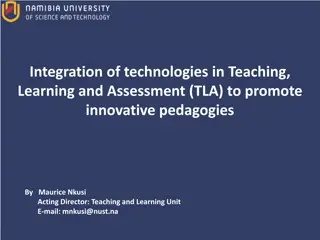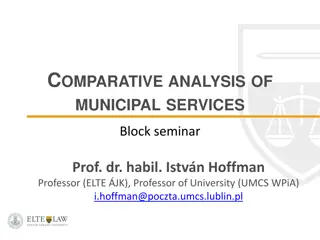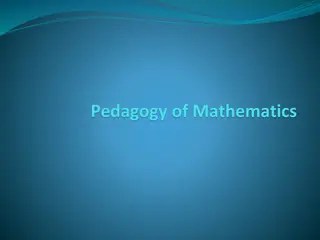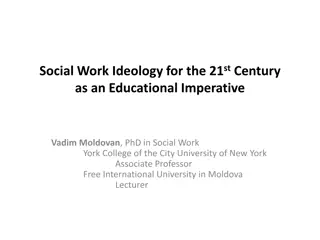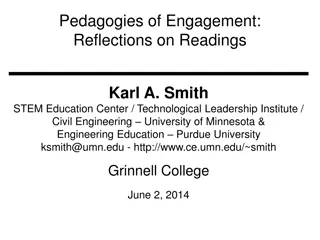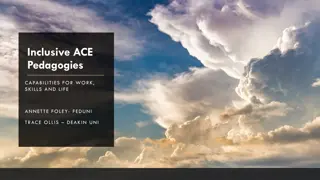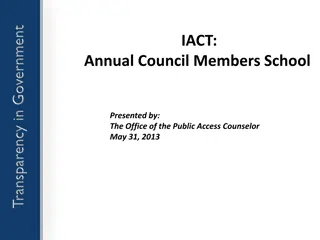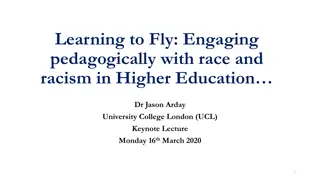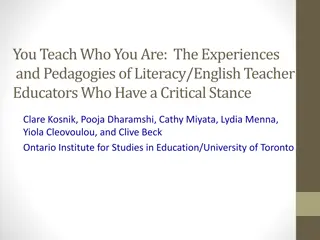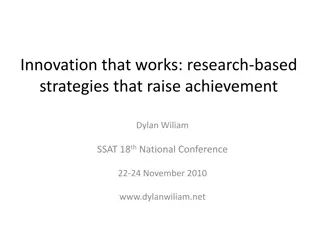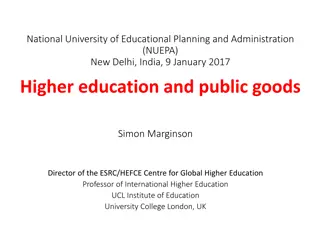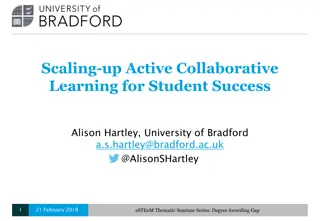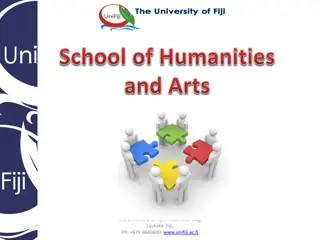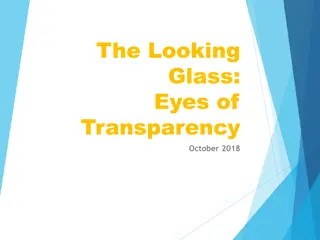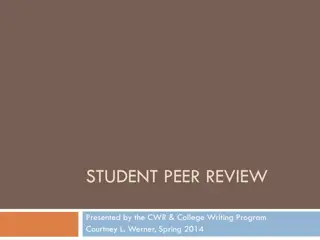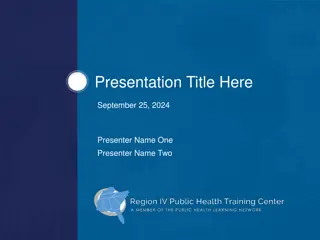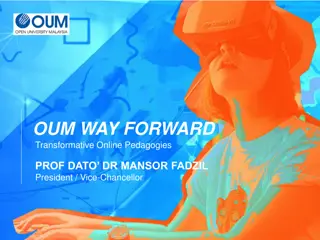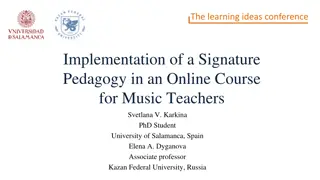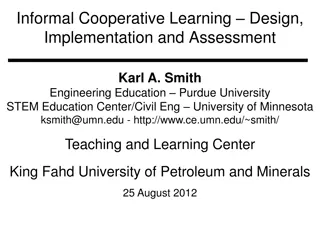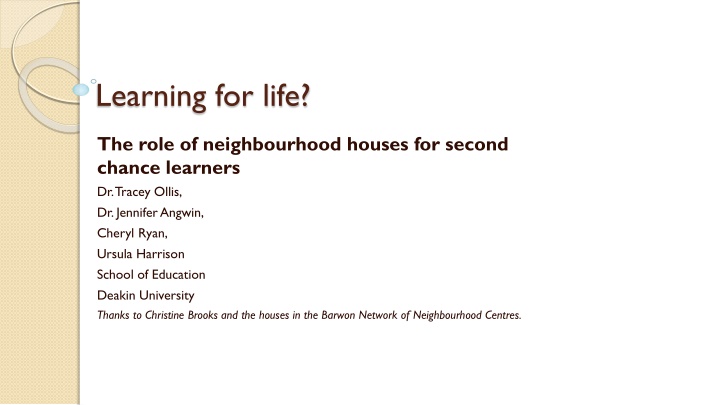
The Role of Neighbourhood Houses in Second Chance Learning
Explore the impact of neighbourhood houses on second chance learners in Geelong and surrounds. Qualitative research reveals the strategies and practices of these houses in supporting learners returning to education for diverse reasons. Public pedagogy and the role of these spaces as sites of learning beyond traditional institutions are also discussed.
Download Presentation

Please find below an Image/Link to download the presentation.
The content on the website is provided AS IS for your information and personal use only. It may not be sold, licensed, or shared on other websites without obtaining consent from the author. If you encounter any issues during the download, it is possible that the publisher has removed the file from their server.
You are allowed to download the files provided on this website for personal or commercial use, subject to the condition that they are used lawfully. All files are the property of their respective owners.
The content on the website is provided AS IS for your information and personal use only. It may not be sold, licensed, or shared on other websites without obtaining consent from the author.
E N D
Presentation Transcript
Learning for life? The role of neighbourhood houses for second chance learners Dr.Tracey Ollis, Dr.Jennifer Angwin, Cheryl Ryan, Ursula Harrison School of Education Deakin University Thanks to Christine Brooks and the houses in the Barwon Network of Neighbourhood Centres.
Geelong and surrounds Geelong area has been affected by changes to traditional industries and employment opportunities Declining manufacturing industries, Ford, Alcoa Skilling the Bay initiative addresses the changing employment and industry landscape through the development and implementation of an education and training led model of business growth and job creation (STB 2013) Neighbourhood houses in the Barwon Network are engaged with and responding to these initiatives
Methodology Qualitative research Critical pedagogical lens applied to the analysis of multiple case studies Exploring the practices, habits and dispositions of participants in NH programs (Bourdieu, 1991). Multiple case study research Partnership with Barwon Network 11 houses Association with South West NH network (extended research project) 50 semi-structured interviews with NH learners Profile of participants: 24 interviews completed (BNNC) 19 women, 5 men Ages range from 22 66 Single mothers, retrenched workers, disability, CALD, long term unemployed, young adults 4 completed all years of secondary schooling
Second chance learning Neighbourhood houses can be viewed as sites of second chance education and learning (Robertson, Hoare & Harwood 2011) Learners who are re-engaging with education and learning following disengagement from traditional sites of education such as schools, TAFES and universities. Second chance learners can also be understood as those returning to study in order to up-grade their qualifications (Hoare)
Public pedagogy and Neighbourhood Houses We are constantly being taught, constantly learn and constantly unlearn. Education is an enveloping concept, a dimension of culture that maintains dominant practices while also offering spaces for their critique and reimagining they deal with bigger more pressing issues of cultivating a pedagogy of humanity, which ultimately has implications for schooling and non-schools settings. These are public pedagogies spaces sites and languages of education and learning that sit outside the walls of the institutions of schools (Sandlin, Schultz, & Burdick, 2010, p. 1).
Neighbourhood houses and learning Education is an important aspect of the Community Development work of Neighbourhood houses (Rooney 2011) Learning in NHs is not confined to instrumental knowledge, also transformative (Kimberley 1998, Foley 1993, 2001) Range of programs: vocational, general adult education, social support, health and wellbeing Targetted programs unemployment, youth issues, domestic violence, parenting, disability. 47% of houses statewide offer accredited training (ANHLC 2014) 64% of houses statewide offer pre-accredited and preparatory education programs (ANHLC 2014)
Second chance learning Second chance learners often have a negative self-perception based on lack of achievement of educational milestones I guess I thought that in a way being thirty-seven I couldn t learn anymore (Marta) So just learning was a big thing and retaining information that was one of the biggest things (Kate) Many have poor literacy and numeracy skills due to non-completion of secondary education (Robertson et al 2011) There was a Course you could do, a Lab Technician Course but at the time Maths and Chemistry wasn t my strongest, I found it a little bit too hard back then it was a bit confusing (Bob) A strong motivation to learn because they wish to enter or re-enter the workforce, improve their workplace status, or for personal interest. So I m really looking forward to what I m going to learn in the future, and whether I m going to learn anymore (Marta)
Emerging Themes Significant numbers of early school leavers and mature aged unemployed Issues of equity and access to skill development, courses and learning Enhanced social and interpersonal skills through course participation, volunteering and building of social networks and friendships Learner agency - realising the potential for future learning Transitions from NH education programs to work, volunteering and further education
Emerging Themes education and employment outcomes I ve learnt how to put a computer together because I got a computer and I didn t know how to do it properly and I thought my mouse was broken and the keyboard was broken but it wasn t it was just that I didn t put it in the right way. I found out that if I didn t work that out it would have cost me about ninety dollars for a person to come in and put it into where it was meant to be (Curly) So if the question is did it help you get employment, well yes (Allan) I find it has helped me to refine my search skills and I believe I am pretty good with, even though my children could probably tell you different, I believe I m pretty good with the computer (Kupi)
Emerging Themes personal and social It s impacted greatly I know that, I m definitely more compassionate as well, I ve always been a compassionate person but not to the level that I am now. I see things from not just my perspective but now I put myself in other people s shoes (Bianca) change in self I suppose there s been a hard side of it trying to fit everything in, working and studying and being a mum so there s a juggle there (Bird) juggling competing interests So coming here it was like wow I m not silly , just coming here and seeing things from a different way it was like I ll be able to do this by myself (Kate) reconstructing learner identity Also there s one more thing, the welcoming feeling that you get when you walk in you think, okay I belong somewhere I m not home alone (Sophia) being connected to others
Joy - Learning as text and poetry I ve always had big dreams. Always wanted to try and achieve them. Always had a dream of opening up an animal shelter. Yeh, I ve always had big dreams. I found the neighbourhood house Enrolled in a course, Computers for my homework, Help out my classmates I m learning About the business Got a website Really proud of that I have the passion, I really want to do it, Ask anyone in class, they ll say I m a nerd Eager to learn I m 24 now, and I m learning about MY business. My mother passed away at thirteen, I moved out of home lived on my own at sixteen in foster care Dropped out of school in year 10, Moved around, no stable home, nowhere to go. At nineteen, had my first child At twenty two my 2nddaughter was born.
Habitus and field Neighbourhood Houses social space This makes you feel like everybody is welcome and everybody is just as important as the next person, yeah you re just so welcome and they ll do anything they can to try and help you. We got lunch served here and it was just amazing, just this environment, everyone here is lovely and everyone here knows your name (Bianca) I really loved the way the course was provided, loved the setting, small group, adult environment, it really suited me (Sarah) But without a facility like this I d be lost, I don t have Internet at home unless it s on my phone so to be able to come here even on days I don t have school and do it, it makes it a hundred times better than any general schooling (Joy)
Habitus and field Neighbourhood Houses social space So the people in the class have been a great support and I think that makes the overall course a fantastic thing . It s not like a school setting, this place doesn t remind me of school it s a gathering of people who want to learn in a friendly environment. I enjoy working in something like this than a TAFE or at a school, somewhere where it doesn t feel like a school but we re still learning we re still getting an education.
Identity change learning to become a student, learner, worker Transformative and emancipatory process of conscientization is defined as the process by which students, as empowerment subjects, achieve a deepening awareness of the social realities which shape their lives and discover their own capacity to recreate them (Darder, 2003,p.4)
References Association of Neighbourhood Houses and Learning Centres (2015). Neighbourhood Houses Survey 2014,ANHLC: Melbourne. Bourdieu, P. (1977). Outline of a theory of practice. Cambridge: New York, Cambridge University Press. Darder, A., et al.(Eds). (2003). The Critical Pedagogy Reader. Routledge, Falmer: London. Humpage, L. (2005) Building Victorian Communities: Outcomes of the Neighbourhood House and Learning Centre Sector, Centre for Applied Social Research, RMIT: Melbourne. Robertson, S., Hoare, L., Harwood, A., (2011). Returnees, student-migrants and second chance learners: case studies of positional and transformative outcomes of Australian international education. Compare a Journal of Comparative and International Education, Vol 41(5), 685 698. Rooney, D., (2011) Centres down under : Mapping Australia s neighbourhood centres and learning. Australian Journal of Adult Learning, Vol 51(2), 203-225.

